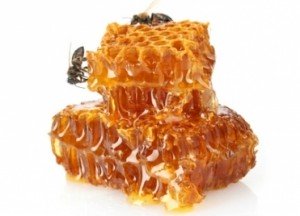
These days there seems to be some pressure to follow a more natural food route, and so there’s been a bit of resurgence in the use of honey, mostly because people think it’s natural and therefore better than sugar. But does ‘all natural’ really mean it is healthier?
The Sweet Facts
It’s true that honey is less refined than sugar, principally raw honey. And it’s true that honey is well known for its antibacterial and anti-inflammatory properties. Further and local honey containing local pollen can help reduce the symptoms of hay fever. Honey also contains vitamins B1, B2, C, B6, B5 and B3, and minerals such as magnesium, potassium, calcium, sodium chlorine, sulphur, iron and phosphate. Sugar has none of these benefits.
But honey is primarily a sugar, it’s sweeter than sugar, and actually contains more calories: 22 calories in a teaspoon compared with 16. So what about the variance in composition and the effect on the body?
This is where it gets a little complicated. Granulated sugar is 100% sucrose – sucrose is a disaccharide carbohydrate made up of 50% glucose and 50% fructose. Honey is a carbohydrate composed mostly glucose and fructose (separately, not as a disaccharide) so it has is processed slightly differently in the body. The percentage of glucose to fructose in honey varies, but the more crystallised the higher the proportion of glucose.
A study by the University of California Davis reported in the Journal of Clinical Investigation found that glucose was preferential to fructose, and that consuming too much fructose can actually put you at greater risk of developing heart disease and diabetes than ingesting similar amounts of glucose.
Confused about what all this means? Well, I don’t blame you. And now enter into this confusing equation all the hype about New Zealand’s Manuka honey.
Why Manuka?
A 2009 survey of people who bought Manuka Honey showed that 58 per cent of them believed it to be better than ordinary honey, but they didn’t know why. In addition, 70 per cent of them didn’t know what the UMF (Unique Manuka Factor) number on the front of the jars meant.
Honey contains an ‘active agent’ thought to support good health. Unfortunately it’s easily destroyed when exposed to heat and light meaning processed honey that’s been heat treated loses most of its benefit.
In contrast Manuka honey contains an extra ‘active’ ingredient known as UMF which is stable and doesn’t lose its potency when exposed to heat, light or dilution. The higher the UMF the more potent (and more effective) its antiviral and antibacterial actions are. However little of this has actually been proved, and its benefits seem to be more effective when used topically rather than ingested.
So what does all this really mean?
Good or Bad?
OK, so honey may be less refined and more natural than white sugar, but it’s still high in calories, it will still raise your blood sugar and contribute to weight gain in an unbalanced diet. And these days with all the societal pressure to maintain a leaner body size there are better options for sweetening like the zero calorie Stevia and lower calorie Xylitol.
The bottom line … all sweeteners, including honey are best avoided. Honey is and should only ever be an occasional treat. And when I do treat myself what’s my honey of choice? Definitely Manuka, but not for its health properties. It simply tastes better.

